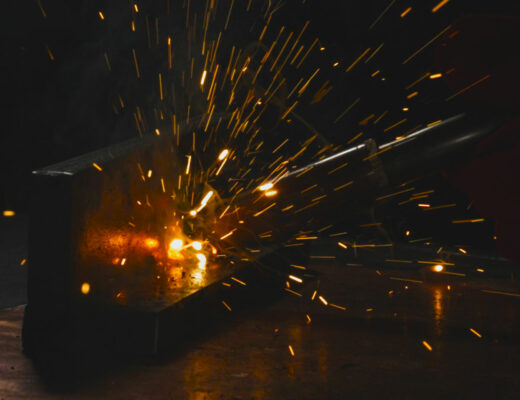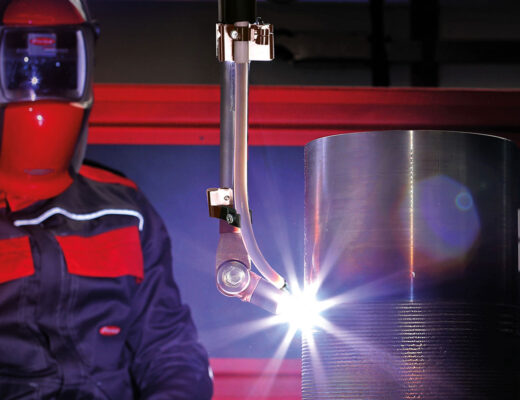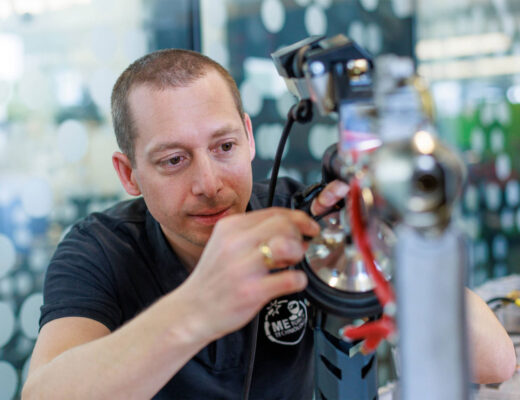If you want to guarantee that the quality of your welding equipment is up to scratch in the long term, you’ll need to calibrate them on a regular basis. For companies working with welding technology, it is essential that systems deliver consistent welding results without fail throughout their service life.
The process of calibrating welding systems involves them being connected up to a calibration station to have their voltage, amperage, and wire feed speed measured. It is also an option to determine the gas flow rate of the welding current source. The calibration software analyzes the values recorded for your welding systems and compares them against the standard specifications in order to identify the discrepancy between the two. This result must fall within the permissible tolerances as set out by the European (EN) 50504 standard, “Validation of arc welding equipment.” If the results of the calibration process are not acceptable, the necessary measures will need to be taken. If a company does not take these required steps, they should not continue to use the welding machine for production—not least based on considerations surrounding quality assurance and product liability.
Benefits and Requirements
As a general rule, MIG/MAG, manual metal arc welding, and WIG systems can be calibrated. Metal-processing companies certified to a standard are required to calibrate their welding equipment on a regular basis. The standards covered here include the ISO 9000 series as well as EN ISO 3834-2, which set out the principles for the quality assurance process for welded products. EN 1090 defines the production standards and CE markings for steel and aluminum supporting structures. A manufacturer who complies with the standards will find themselves in a position to gain their customers’ trust and to build up a reputation as a professional enterprise. Not to mention that being able to prove calibration has been performed can come in handy in the event of complaints.
There’s no denying that regular system maintenance comes at a cost. But it’s nothing compared to the price you will pay if you cannot prove that your production process is in line with the standards in the event of damage occurring. Remember that accidents can cause harm to people as well as steel constructions. With that in mind, it is a company’s responsibility toward their customers to guarantee product quality and regularly calibrating welding machines is the first step on the path to achieving this.
TIP: Combining safety inspections with calibration is an effective way of saving time and money.
If you’re interested in finding out more about calibration, head over to the Fronius-website to read up on our services.
 Perfect Welding Blog
Perfect Welding Blog







10 Comments
Tom Holland
3. September 2020 at 10:22It’s always a pleasure to read good post like this one, Your blog has been a source of great knowledge about benefits of a certified calibration welding machine. Keep Posting.
redakteur
3. September 2020 at 12:02Thank you very much for your nice feedback. Glad to hear that!
Anita
30. October 2020 at 16:43Thanks for the suggestion to calibrate a welding machine. I’m sure, it will also reduce the maintenance cost!
redakteur
9. November 2020 at 11:59Hi Anita, Thank you for your comment! The calibration of a welding machine can indeed reduce costs in the long-run, because calibration secures the longevity of the machine. Other benefits are not cost-related but make welding more secure: Calibration ensures that all welding machines in one company produce the same high quality weld seams and that the seams conform to legal standards. If you want to learn more about calibration – check our website (https://www.fronius.com/en/welding-technology/product-list?filter=2863&utm) or send us an e-mail to sales@fronius.com
Jason
11. November 2020 at 13:13You guys are always ahead in welding thanks for the guide can you write something about welding helmets how to calibrate them?
redakteur
13. November 2020 at 9:14Dear Jason, thank you for your kind comment! If you are looking for information about welding helmets, check out our website: https://www.fronius.com/en/welding-technology/products/accessories/personal-protective-equipment/automatic-protective-welding-helmets
Depending on which helmet you are using, you can connect it to the welding machine via Bluetooth and on auto darkening helmets you can adjust the sensitivity as well as the shade level. Check the operating instructions for more details. Calibration as such is not necessary. All the best, your Fronius blog-team
louis sham
19. May 2021 at 17:27To ensure that your welding machine is operating at the appropriate levels it is important to have it calibrated and certified. Calibrating your welding machine involves going through the meters on your welding machine and adjusting them until they meet the specifications set forth by the manufacturer.
https://bestweldinghelmet.net/best-flip-front-welding-helmet/
Asif
18. September 2021 at 13:35Thank you so much. I am using more than 1 welding machine for my workshop. I think I should calibrate them on a regular basis. Thank you so much!
Derek
20. December 2021 at 1:23As a somewhat newer member of the welding industry, I never knew the importance of calibrating welding machines. Although it can be time-consuming, I now realize the importance it serves. Thank you for the great article!
redakteur
22. December 2021 at 10:29Thank you very much for your feedback!